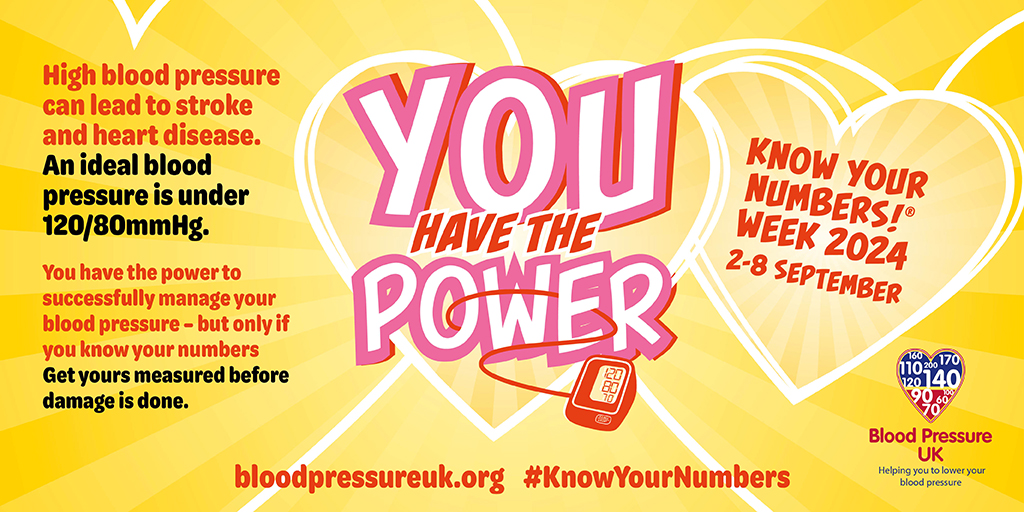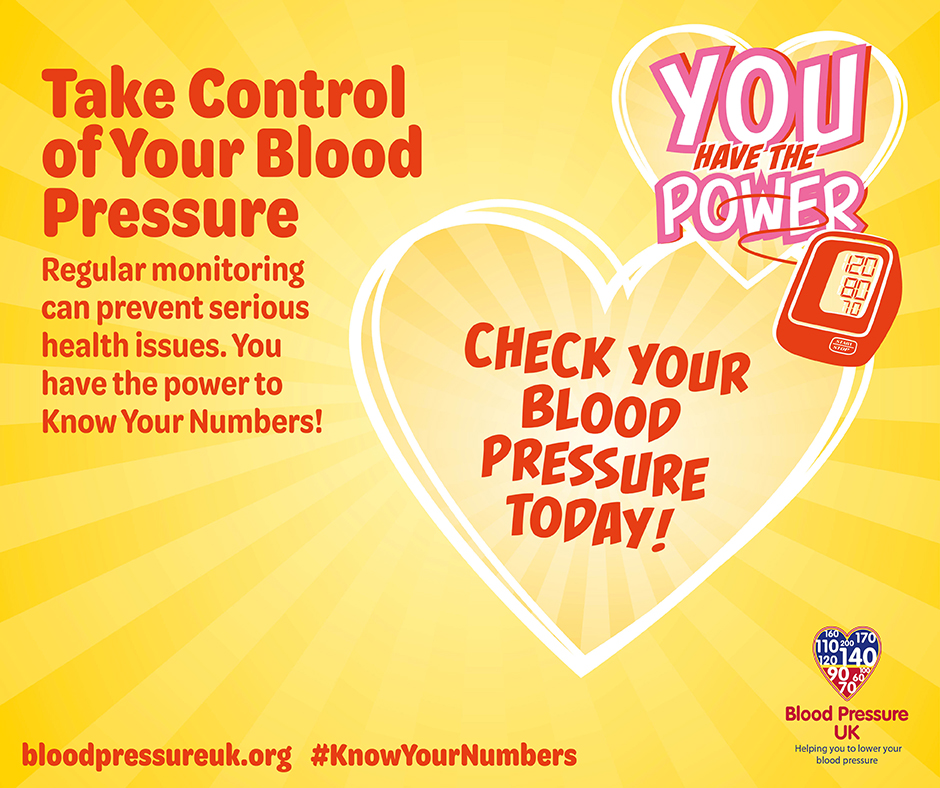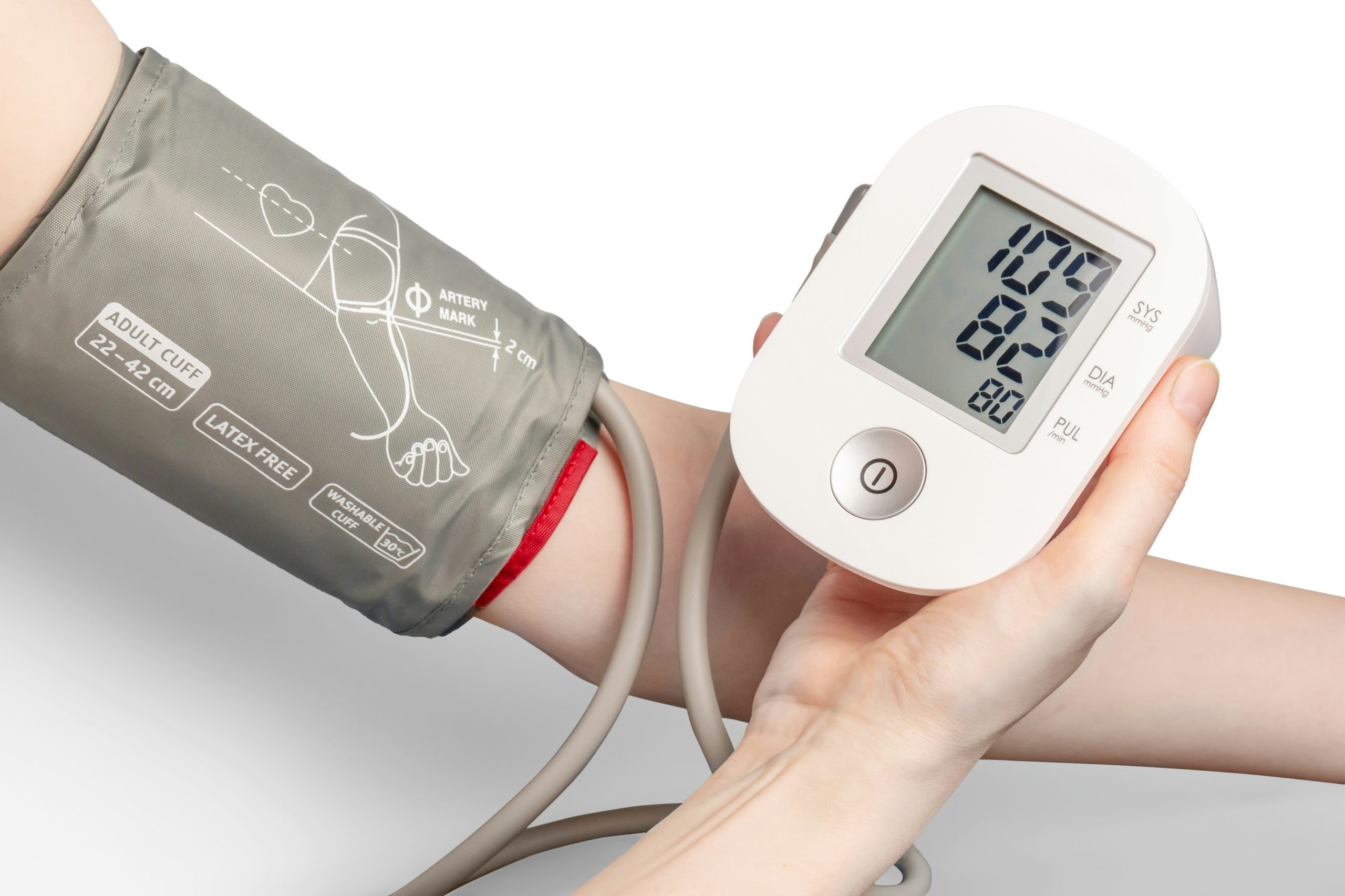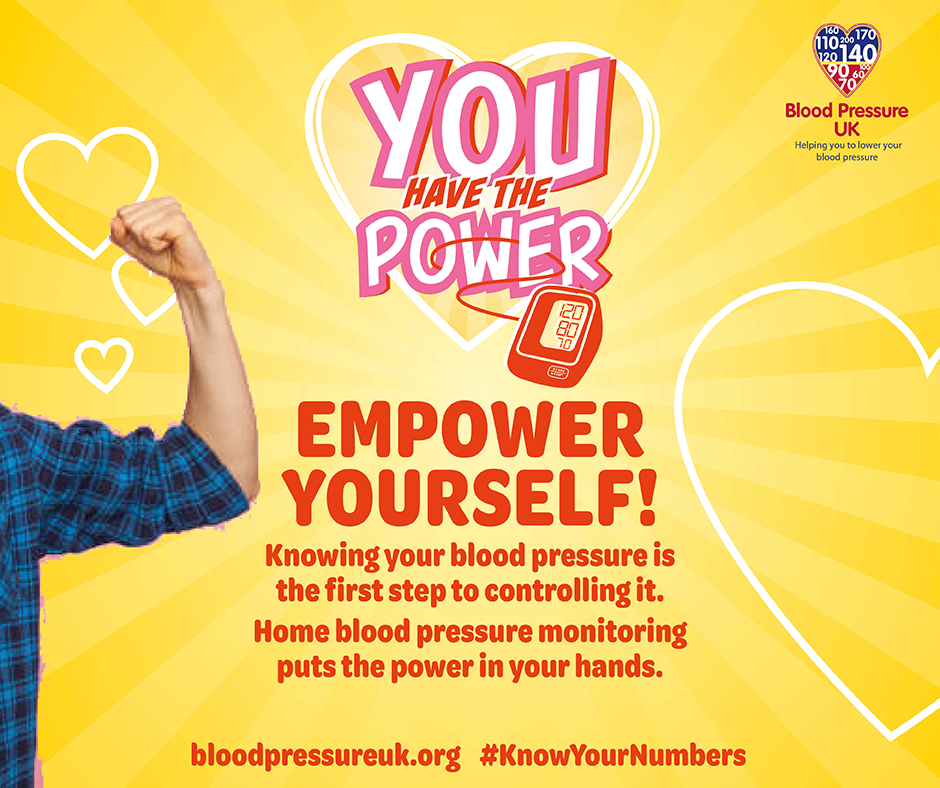Could you have high blood pressure? Know Your Numbers!
Around 5.5 million people in England have high blood pressure and don’t know it.
Having high blood pressure puts you at greater risk of cardiovascular disease (CVD) – conditions that affect your heart, veins and blood.
High blood pressure – sometimes called hypertension – increases your risk of a fatal heart attack, stroke, kidney disease or vascular dementia.
The good news is that high blood pressure is easy to check, and once diagnosed, it can be managed with lifestyle changes or medication.

Know Your Numbers
High blood pressure usually has no symptoms, so the only way to know for sure is to get checked.
This week is Know Your Numbers week. Every September, people are encouraged to get their blood pressure taken and know their numbers.
If your blood pressure is high, you can take steps to manage it and reduce your risk of CVD.
Blood pressure checks are quick and simple.
A cuff is placed around your upper arm and inflated until it feels tight. It may feel uncomfortable, but it only takes a few seconds.
Sensors in the cuff take a reading shown on a digital display. You should see the result immediately.
Getting your blood pressure measured
If you are over 40, you can get a blood pressure check at a local pharmacy.
It’s quick and free, and you don’t need an appointment. Find pharmacies offering blood pressure checks by clicking the button below.
We also have a blood pressure machine at The Grove Medical Group that patients can use without an appointment.
Understanding your Results
Blood pressure readings are given as two numbers. The first is the pressure when your heart pumps blood around your body, and the second is when your heart rests between beats.
Your result will be explained to you, but generally, an idea blood pressure is under 120/80mmHG.



What can I do?
If your blood pressure is high or at risk of becoming high, there are things you can do to lower your risk.
Making some lifestyle changes can reduce your risk, including:
- stopping smoking
- drinking less alcohol
- drinking less caffeine
- eating less salty food
- eating more fruit and vegetables
- losing weight
- getting more regular exercise.
There are some risk factors you can’t do anything about.
Your risk will be higher if you are over 65 or from Black African or Black Caribbean communities, so regular checks are vital to knowing what changes you should be making to lower the risk.
